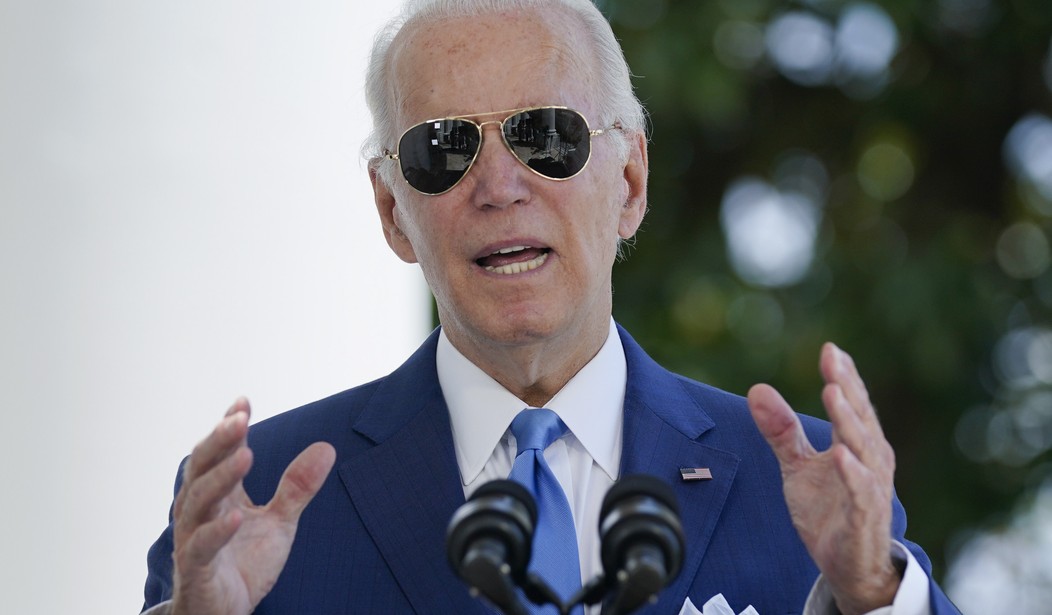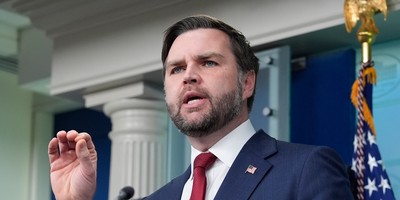With President Biden poised to spend hundreds of billions in taxpayer dollars to “forgive” the student loan debt for millions of Americans, many (especially those who didn’t voluntarily choose to incur those debts) are understandably alarmed.
Alarmed, not only because of a host of underlying questions (does the President have the lawful authority to even do this, for instance), but because this adds to an unprecedented amount of government spending, all the while failing to address the underlying problems that gave rise to this level of student loan debt in the United States.
Because it is 2022, the push-back against the thoughtful criticism of the President’s decision has been hysterically hyperbolic—with critics being accused of being greedy, unfeeling, and, worst of all, hypocritical, especially in the face of the millions of Americans who took (what we knew were going to be forgiven) Paycheck Protection Program “loans” during the COVID-19 pandemic.
This kind of “whataboutism” is rarely accurate, enlightening, or helpful. But what makes the accusations against lawful PPP recipients (as opposed to those who took PPP monies under false pretenses) is just how entirely inappropriate the comparison is. The propriety of accepting the kind of support offered under the PPP stems from a very simple proposition vis a vis the government, namely, “you break it, you buy it.”
It is a well-established principle under US law that the government has a responsibility to compensate individuals when their actions deprive people of their property. This is one of the major tenets of the 5th Amendment to the US Constitution: “No person shall be deprived of life, liberty or property without due process… nor shall private property be taken for public use, without just compensation.”
Recommended
Literally a century ago, in 1922, the Supreme Court in Pennsylvania Coal v. Mahon found that the regulatory power of government could constitute a taking for 5th Amendment purposes. In 2021, the Supreme Court underscored this concept in Cedar Point Nursery v. Hassid.
So in the minds of many legal scholars, when government action unilaterally shut down millions of businesses (for weeks and in some cases for months), those governments should be held responsible for compensating those businesses for their losses as a matter of constitutional principle. This is a far different question than the logic of shutting down those businesses, or the massive expense incurred as a matter of obligation under the 5th Amendment’s takings clause. In fact, had those responsible for considering and implementing such shut downs considered the Constitutions’ obligations, they might have reconsidered their actions… which is precisely what the Constitution warrants, as Justice O’Connor wrote in the 1992 Supreme Court case, New York v. United States:
“[T]he Constitution protects us from our own best intentions: It divides power among sovereigns and among branches of government precisely so that we may resist the temptation to concentrate power in one location as an expedient solution to the crisis of the day.”
With that in mind, it makes it clear that the attempt to compare receipt of PPP funds with student loan debt “forgiveness” is a false dichotomy (unless someone wants to blame the government takeover of the student loan industry for the level of current debt, which isn’t an argument being advanced by the critics of PPP recipients).
Fascinating too is how this further underscores the flawed logic in those advocating to dismantle the protection for US businesses, especially US agriculture, in our national trade policy.
In the same way that the US government was largely responsible for the shutdown of US businesses during the pandemic (thus necessitating policies directed at protecting those businesses being harmed), the same can be said about US policies that put businesses operating in the global marketplace at a distinct disadvantage to our foreign competitors.
Federal public policy has driven up labor costs, energy costs, and a whole host of regulatory costs that make it difficult at the outset for our nation’s farmers to compete on a world stage.
At the same time, our competitors abroad recognize the competitive disadvantage U.S. businesses face, and they further exploit it, working to undercut the prices for U.S. goods through a scheme of massive subsidies that completely overwhelm any support our farmers might receive from the U.S. government (and if we learned anything from the pandemic, it is how important it is to maintain domestic supplies of a whole host of goods, most-especially agricultural goods, here in the U.S.).
Congress will take up a new “Farm Bill” in the next session (regardless of which party controls the federal legislature). How U.S. farmers are protected on the global trade stage is already a part of the discussion—and as the bill moves forward, the kinds of false dichotomies in the PPP versus Student Loan Forgiveness will be raised. This will include criticism of the concept of “Zero-for-Zero”, the idea that the U.S. won’t “disarm” when it comes to our trade protections until our global competitors do.
But like the circumstances of the PPP, the U.S. government is largely responsible for the competitive economic disadvantage of America’s farmers. As such, it is the responsibility of the U.S. government to continue to protect U.S. farmers from predatory trade practices of our global competitors, especially if the federal government is continuing to add to burdens that created those competitive disadvantages in the first place. At a minimum, “Zero-for-Zero” should be included in the 2023 farm bill.
Andrew Langer is President of the Institute for Liberty.

























Join the conversation as a VIP Member